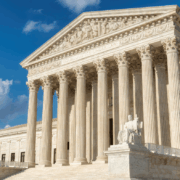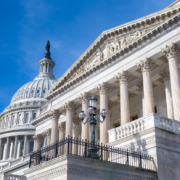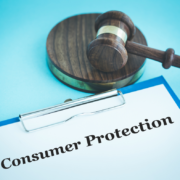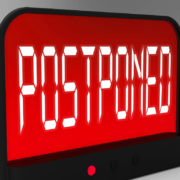Media Contact: Lisa McDonald, Vice President of Communications, 202-207-2829
Washington, DC– Today, the National Consumers League, Consumer Federation of America, Consumer Reports, and 118 other stakeholders sent a letter to congressional leaders calling on Congress to preserve an independent, bipartisan Consumer Product Safety Commission (CPSC) and ensure the agency has the appropriate tools, resources, and personnel to carry out its lifesaving mission.
“We strongly support the Fiscal Year (FY) 2026 CPSC budget submitted on June 26, 2025, and urge you to provide the vital resources and support requested,” the product safety advocates write. “These resources and personnel will enable the CPSC to better stop hazardous products at U.S. ports of entry, vigorously enforce product safety laws, investigate product hazards, effectively convey safety information to the American public, and accelerate the modernization of mission-critical technology.”
The FY 2026 Department of Health & Human Services’ (HHS) budget and a rescinded FY 2026 CPSC budget recommend that CPSC’s functions be transferred to HHS. In their letter, the product safety advocates detail why HHS is not well-suited to oversee household product safety.
“Product safety will likely be deprioritized,” the letter states. “HHS already has a vast mission, which includes food and drug regulation, communicable disease prevention, public health emergency preparation and response, medical research, and administration of Medicare, Medicaid, and the Children’s Health Insurance Program.”
The 121 stakeholders also argue that transferring the CPSC to HHS would impede the nation’s product safety regulator.
“The additional layers of bureaucracy will lead to less effective and efficient governance of household product safety,” the product safety advocates write. “Rulemakings, enforcement actions, research initiatives, and education campaigns may be subject to review, modification, and approval by the Secretary of HHS and the Office of Management and Budget. Such processes could add months if not years to product safety actions, if the action is permitted at all.”
A copy of the letter can be found HERE
A video of victims’ parents advocating to protect the CPSC can be found HERE
Letter cosigners:
National Consumers League
Consumer Federation of America
Consumer Reports
Access Ready Inc.
Action on Smoking and Health
Aden Lamps Foundation
Advocates for Highway and Auto Safety
Aging Life Care Association
America Walks
American Academy of Pediatrics
American Academy of Pediatrics, Arizona Chapter
American Academy of Pediatrics, Arkansas Chapter
American Academy of Pediatrics, Delaware Chapter
American Academy of Pediatrics, Florida Chapter
American Academy of Pediatrics, Georgia Chapter
American Academy of Pediatrics, Idaho Chapter
American Academy of Pediatrics, New York Chapter 2
American Academy of Pediatrics, New York Chapter 3
American Academy of Pediatrics, Pennsylvania Chapter
American Academy of Pediatrics, Virginia Chapter
American Academy of Pediatrics, Washington D.C. Chapter
American Academy of Pediatrics, West Virginia Chapter
Bicycle Alliance of Minnesota
Bicycle Coalition of Greater Philadelphia
Bicycle Colorado
Bicycle Helmet Safety Institute
Bike Cleveland
Bike LA
Bike Pittsburgh
BikeWalkKC
BikeWalkNC
BioInjury, LLC
California Bicycle Coalition
Center for Auto Safety
Center for Digital Democracy
Center for Economic Integrity
Center for Economic Justice
Center for Justice & Democracy
Center for Pet Safety
Child Care Aware of Virginia
Claire Bear Foundation
Consumer Action
Consumers for Auto Reliability and Safety
Cribs for Kids
Derrick Stone Safe Sleep
Detroit Greenways Coalition
Disability Rights Education and Defense Fund
Earth Ethics, Inc.
Epilepsy Foundation of America
Families for Safe Streets
First Candle
Food Empowerment Project
Government Information Watch
Green America
Hawai’i Bicycling League
Healthy Babies Bright Futures
HealthyWomen
Homestretch Nonprofit Housing Corp.
Housing and Economic Rights Advocates
Just Strategy
Keeping Babies Safe
Kids and Car Safety
League of American Bicyclists
Living Streets Alliance
Local Motion
Main Street Academies
Maine People’s Alliance
Massachusetts Bicycle Coalition
Missourians for Responsible Transportation
Napa County Bicycle Coalition
National Bicycle Dealers Association
National Center for Health Research
National Center for Healthy Housing
National Coalition for Safer Roads
National Drowning Prevention Alliance
National Safety Council
Oregon Consumer Justice
Oregon Consumer League
Parents Against Tip-Overs
PediMom LLC
People Power United
Pool and Hot Tub Alliance
Responsible Sourcing Network
Ride Illinois
Safe Infant Sleep
Safe Kids Worldwide
Safety Research & Strategies
Sciencecorps
Shepard’s Watch
Stop Drowning Now
StopDistractions.org
That Water Bead Lady
The National Carbon Monoxide Awareness Association
The Center for Science in the Public Interest (CSPI)
The Wisconsin Bike Federation
Together We Thrive, Inc.
Trailnet
Truck Safety Coalition
U.S. Public Interest Research Group
U.S. Swim School Association
United States Swim School Association
Unleaded Kids
Virginia Citizens Consumer Council
Washington Area Bicyclist Association
West Virginia Citizen Action Group
Women in Fire
Justin Raphael, Product Safety Advocate
Kelli Schweigart, Product Safety Advocate
Kristina Knapp, Product Safety Advocate
Mary Jagim, Product Safety Advocate
Mayra Romero-Ferman, Product Safety Advocate
Melissa Wandall, Product Safety Advocate
Michael Haggard, Product Safety Advocate
Nina Batista, Product Safety Advocate
Pamela Gilbert, Product Safety Advocate
Paul Susca, Product Safety Advocate
Sandeep Khatua, Product Safety Advocate
Sara Thompson, Parent Advocate
Sofia Diaz, Product Safety Advocate
Stephen Hargarten MD MPH, Product Safety Advocate
Taylor Bethard, Parent Advocate
###
About the National Consumers League (NCL)
The National Consumers League, founded in 1899, is America’s pioneer consumer organization. Our mission is to protect and promote social and economic justice for consumers and workers in the United States and abroad. For more information, visit www.nclnet.org.























